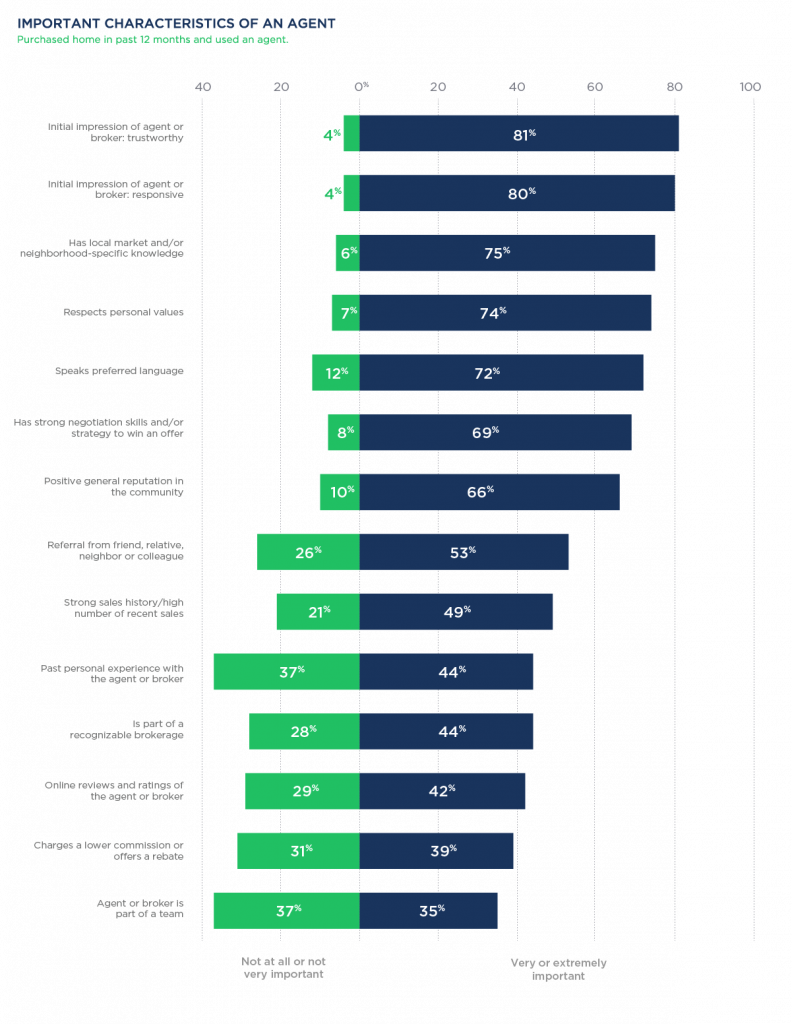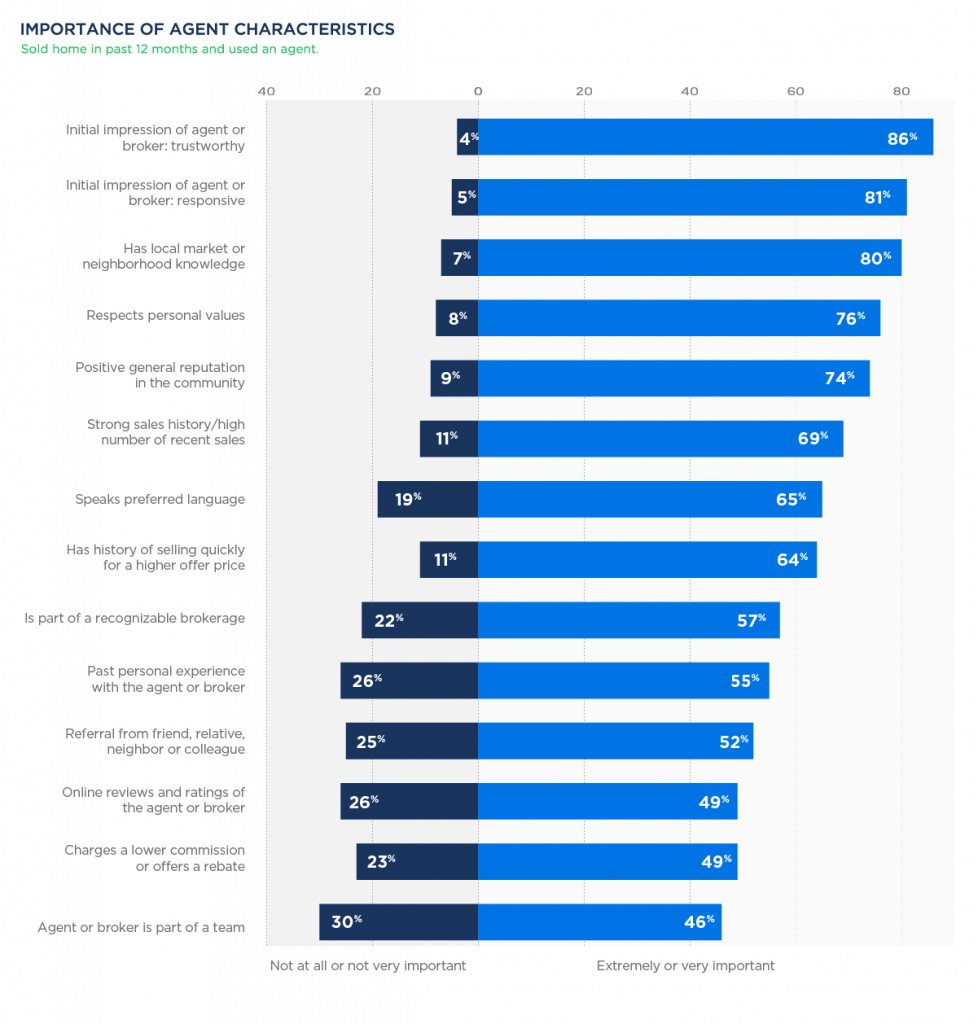10 min read
How to Become a Real Estate Agent
Here’s how to become a real estate agent with training required by each state.

Interested in becoming a real estate agent and enjoying the perks that come with it, like setting your own hours and being your own boss? While there are many benefits to choosing this career, getting started as a real estate agent requires time and dedication.
While requirements vary by state, here's a general outline of how to become a real estate agent:
- Meet your state's licensing requirements
- Complete real estate pre-licensing courses
- Pass your state's real estate license exam
- Work under a licensed broker
- Submit a real estate license application
- Create a real estate marketing plan
- Build your network
1. Meet your state's licensing requirements
Every state has its own set of qualifications, with Colorado and Texas being the most difficult places to obtain a license. While no states require a college education to be a real estate agent, you will likely have to complete some type of continuing education once you're licensed. Check your state's real estate license requirements.
What is required to be a real estate agent?
Your state's real estate license requirements will outline the specific steps to become a real estate agent in your location. These are the basic qualifications to be a real estate agent:
- At a minimum, you'll need to be at least 18 years old, but some states may require you to be over 21.
- Many states require pre-licensing education that ranges anywhere from 20-200 hours.
- In some cases, you can skip pre-licensing education if you have completed law school or passed the bar exam.
- If you're already licensed in another state, you may also be qualified to skip some or all of the pre-licensing education requirements.
- Many states require either a high school diploma or GED before enrolling in a real estate pre-licensing course.
- You'll likely have to pass a background check and have your fingerprints taken.
- In some states, people with a felony on their record can’t become real estate agents except in extenuating circumstances.
2. Complete real estate pre-licensing courses
Every state requires some form of regulatory education before you can become a licensed real estate agent. The scope of pre-licensing requirements is decided by each state’s real estate commission. In most cases, this education can be completed online, in a classroom or a mix of both. You'll likely spend between three and six months completing your real estate pre-licensing courses. Take a look at your state's requirements and determine the best option to start your career as a successful real estate agent.
What to look for in a pre-licensing school or program:
- A good reputation
- Quality instructors and course materials
- A course schedule that works for you
- State-approved courses
- An exam preparation program
How much does pre-licensing education cost?
The answer depends on the depth of the program, the courses you take, your state's requirements and the institution. You can expect to pay $200 or less for many programs, but some cost more than $700.
What do you learn in a real estate pre-licensing course?
A real estate pre-licensing course will cover both state-specific and federal laws and regulations. While additional topics will vary by program and location, you can expect to learn about:
- Fair housing laws
- Types of property ownership
- Fiduciary responsibilities
- Titles
- Deeds
- Contracts
3. Pass your state's real estate license exam
After completing your pre-licensing courses, your next step is to take your state's real estate license exam. Many license exams include 100-120 multiple choice questions and take four to five hours to complete. While it varies by state, expect your real estate license exam to cost between $100 and $300 and cover:
- Working with clients
- Negotiating
- Closing a deal
- Following real estate law
How to register for a real estate exam
You'll register for a real estate exam on your state's real estate licensing website. You may be required to:
- Provide proof of pre-licensing coursework.
- Pick a date, time and location to take the exam.
- Pay the exam administration fee, which may cost between $50 and $100.
How to study for a real estate exam
You can find a variety of practice videos and tests online to help you prepare for your real estate licensing exam. Depending on your pre-licensing program, you may even take a practice exam as part of your course. Here are tips on how to study for a real estate exam:
- Take a real estate exam practice test online or at your school.
- Talk to other licensed agents for advice.
- Find a local study group.
- Download and study real estate flashcards.
How to pass a real estate exam
Real estate exams use a pass/fail system. Be sure to use your time wisely if your exam is timed. If there’s a question you don’t know the answer to, consider moving on and then circling back to that question once you’ve completed all the ones you know. Another strategy is to use the process of elimination — even if you don’t know which answer is right, you may be able to quickly eliminate answers that you know are incorrect, and that will give you better odds of choosing the correct answer.
To pass the exam: You must meet your state's minimum passing score, which is generally around 70%.
If you don't pass the first time: Don't fret. Most states will allow you to retake the exam.
4. Work under a licensed broker
Many states require a new real estate agent to work under an experienced broker before they can branch out on their own. While the amount of time you'll need to work under a broker will vary, it's a good idea to do it for at least six months to a year so you can gain experience and get the hang of the industry. Start looking at real estate brokers early on in your pre-licensing process — it will make choosing a real estate brokerage easier than waiting until the last minute, and you'll likely be able to have a job lined up when you get your license.
There are two types of brokerages:
Independent: Independent brokerages are smaller, local companies that can often provide an individualized focus on your career growth and mentorship. The trade-off is that they may have fewer resources and training opportunities than a large brokerage and may also have a smaller network.
Franchise: Franchises are large, nationally recognized brokerages. They'll typically have a larger marketing budget, own a larger share of the market and have significant brand recognition, although you'll likely have to pay a higher initiation fee and may be limited on developing your personal brand and marketing efforts.
How to choose a broker
Although you’ll need to go through the interview process and be hired by a broker, you can still be selective when looking for the best fit. Some factors to consider are:
- If you want to work with a franchise or an independent broker
- If the brokerage is close to the area you want to operate in
- The broker's goals and company mission
- The brokerage's average number (and quality) of listings
- If the brokerage offers real estate agent training, tools and a marketing budget to help you get started.
5. Submit a real estate license application
After completing your pre-licensing courses, passing the exam and finding a broker to work under, you're ready to get your real estate license! Here's how to obtain your real estate agent certification:
- Submit a real estate license application with your exam results and brokerage information.
- Pay the real estate license application fee (it varies by state, but is usually around $25).
- Pay for fingerprinting and a background check, if required (you'll likely pay around $100 for this).
How long does it take to get a real estate license?
After submitting your application, you'll likely be notified of approval within six weeks. Depending on your state's licensing requirements — including the completion of pre-licensing coursework — it can take anywhere from three to six months to get a real estate license.
How often do you need to renew your real estate license?
Every state will vary, but you should expect to have to renew your license every couple years. To renew your license, you may need to show proof of continuing education and pay a renewal fee. It's important to renew your license before it expires — some states may have a grace period for expired licenses, but some may not.
6. Create a real estate marketing plan
A good real estate marketing plan sets you up for success — and apart from the competition. You'll use it to reach your target audience, build brand awareness and convert leads into clients (and ultimately a paycheck!). Zillow offers a free, downloadable real estate marketing plan template to help set you up for success as an agent.
Choose an area for farming real estate leads. A farming area is a zip code, neighborhood or other designated area where you focus your marketing efforts. It should be a location that you know well so you can demonstrate your local expertise when farming real estate leads.
Monitor the competition. What marketing strategies are they using? What are they doing that's working? And, most importantly, how can you improve on their strengths and use their weaknesses to your advantage?
Plan a marketing calendar. It's crucial to stay on track, especially as a new real estate agent. A calendar will outline your target audience and show what marketing strategies to use — and when. Maintaining a consistent cadence is key.
Build a website. Regularly update it with shareable content and new listings, and clearly display your contact information.
Establish your brand. Invest in printed marketing materials, like business cards and real estate flyers, that you can give to contacts and distribute at local businesses and events. Make sure your brand appearance is consistent across these printed materials and your digital presence (website, blog and social media).
Measure your performance. Track your ROI and make adjustments when needed.
As a Zillow Premier Agent, you'll be provided with a personalized website to start building your brand. You'll also be connected to live leads and provided with insight into which homes they're searching for, viewing and saving on Zillow.
7. Build your network
Once you have a marketing plan, it's time to start building your network, or sphere of influence. Instead of relying on referrals from friends and family, consider finding a mentor and connecting with people in your farming area to establish yourself as a trusted source of real estate knowledge. According to the Zillow Consumer Housing Trends Report 2018, 81% of buyers and 86% of sellers say trustworthiness is the top quality they look for in an agent. Here are other qualities buyers and sellers look for in their agent:
Buyers

Sellers

How can beginning real estate agents build their network?
- Attend conferences and events to connect with other agents.
- Go out of your way to provide exceptional customer service.
- Engage with connections on social media through groups, messages and industry-specific posts.
- Ask for referrals directly.
- Carry business cards in case a contact wants to refer someone to you.
- Respond promptly to any communication.
- Give personalized real estate gifts to show you value your clients.
Real estate licensing requirements by state
Pre-licensing is the regulatory education required by each state's real estate commission for getting your license and working in the real estate industry. These are the pre-licensing course requirements to become a real estate salesperson in each state. Your state may have additional requirements, including a background check, fingerprinting and a GED. In many states, obtaining a broker’s or broker’s assistant license also has additional requirements. You may be able to have the pre-licensing courses waived with proof of sufficient education, experience or a license in another state.
Pre-licensing courses by state:
- Alabama: 60 hours
- Alaska: 40 hours
- Arizona: 90 hours
- Arkansas: 60 hours
- California: 135 hours
- Colorado: 168 hours
- Connecticut: 60 hours
- Delaware: 99 hours
- District of Columbia: 60 hours
- Florida: 63 hours
- Georgia: 75 hours of pre-licensing courses, or 10 quarter hours or 6 semester hours of approved real estate courses at an accredited university or college.
- Hawaii: 60 hours
- Idaho: 90 hours
- Illinois: 45 hours
- Indiana: 90 hours
- Iowa: 36 hours
- Kansas: 30 hours
- Kentucky: 96 hours
- Louisiana: 90 hours
- Maine: 55 hours
- Maryland: 60 hours
- Massachusetts: 24 hours
- Michigan: 40 hours
- Minnesota: Three pre-licensing courses
- Mississippi: 60 hours
- Missouri: 48 hours of pre-licensing courses or one of three other requirements (such as being a licensed attorney).
- Montana: 60 hours
- Nebraska: 60 hours
- Nevada: 90 hours
- New Hampshire: 40 hours
- New Jersey: 75 hours
- New Mexico: 90 hours
- New York: 75 hours
- North Carolina: 75 hours
- North Dakota: 45 hours
- Ohio: 120 hours
- Oklahoma: 90 hours
- Oregon: 150 hours
- Pennsylvania: 60 hours
- Rhode Island: 45 hours
- South Carolina: 60 hours
- South Dakota: 116 hours
- Tennessee: 60 hours
- Texas: 210 hours
- Utah: 120 hours
- Vermont: 40 hours
- Virginia: 60 hours
- Washington: 60 hours
- West Virginia: 90 hours
- Wisconsin: 72 hours
- Wyoming: 54 hours
Those are the basics on how to be a real estate agent. For more articles, tips and data on how to work in real estate, visit the Zillow Premier Agent homepage.
Tips for top-performing listings
Backed by new research, this guide reveals what today’s top listings do differently to capture buyer attention and outperform the rest.
Learn more

